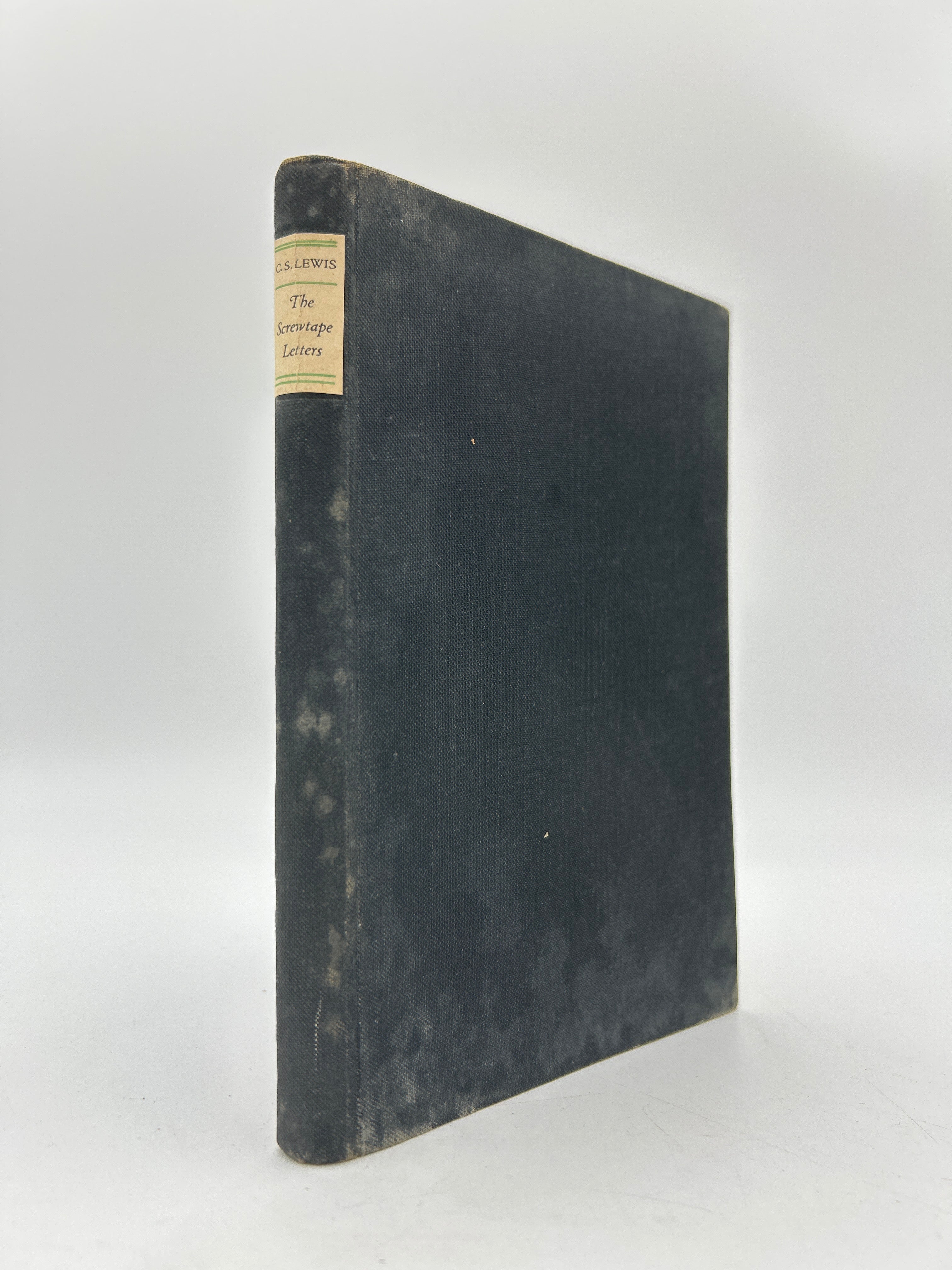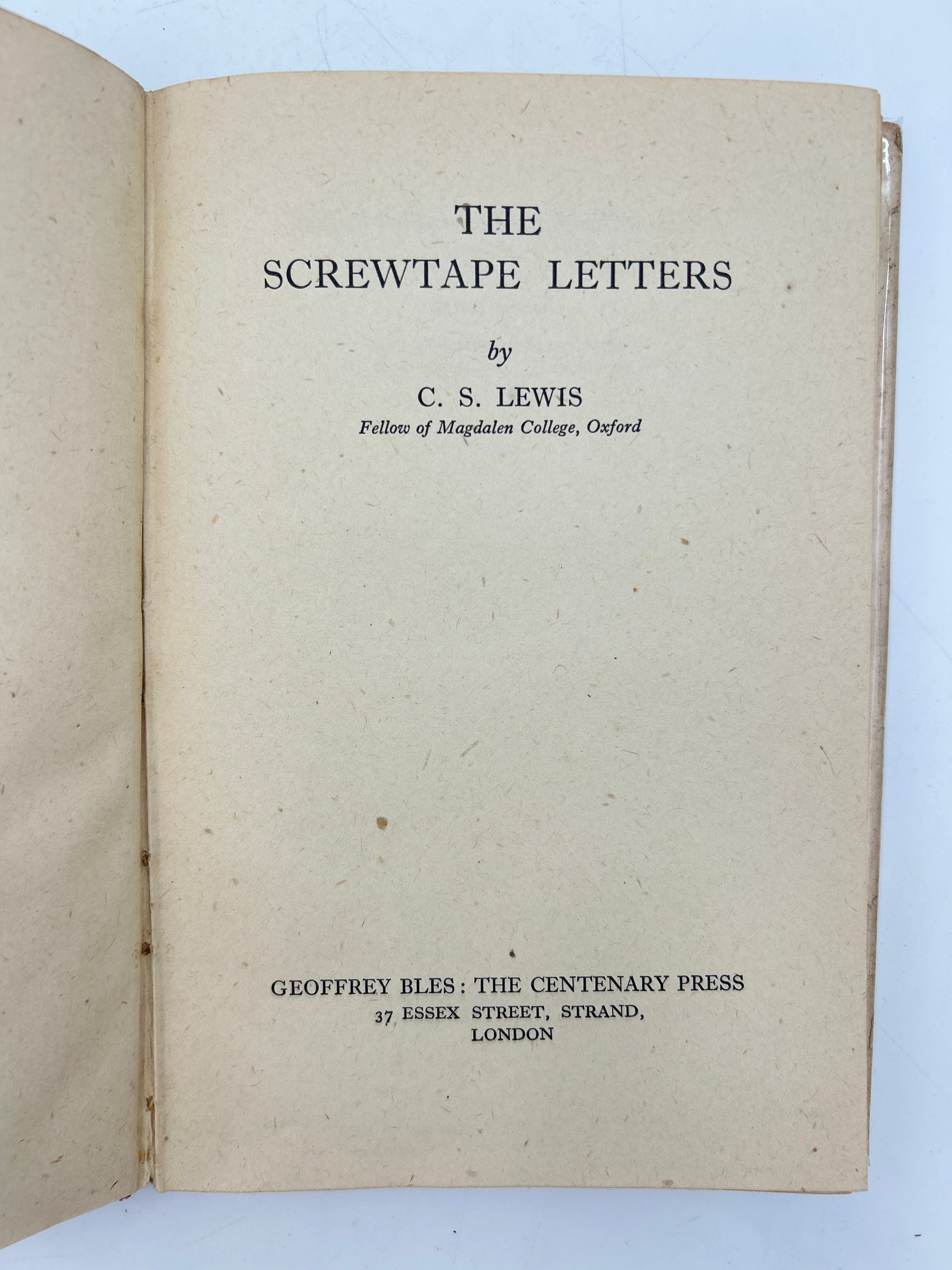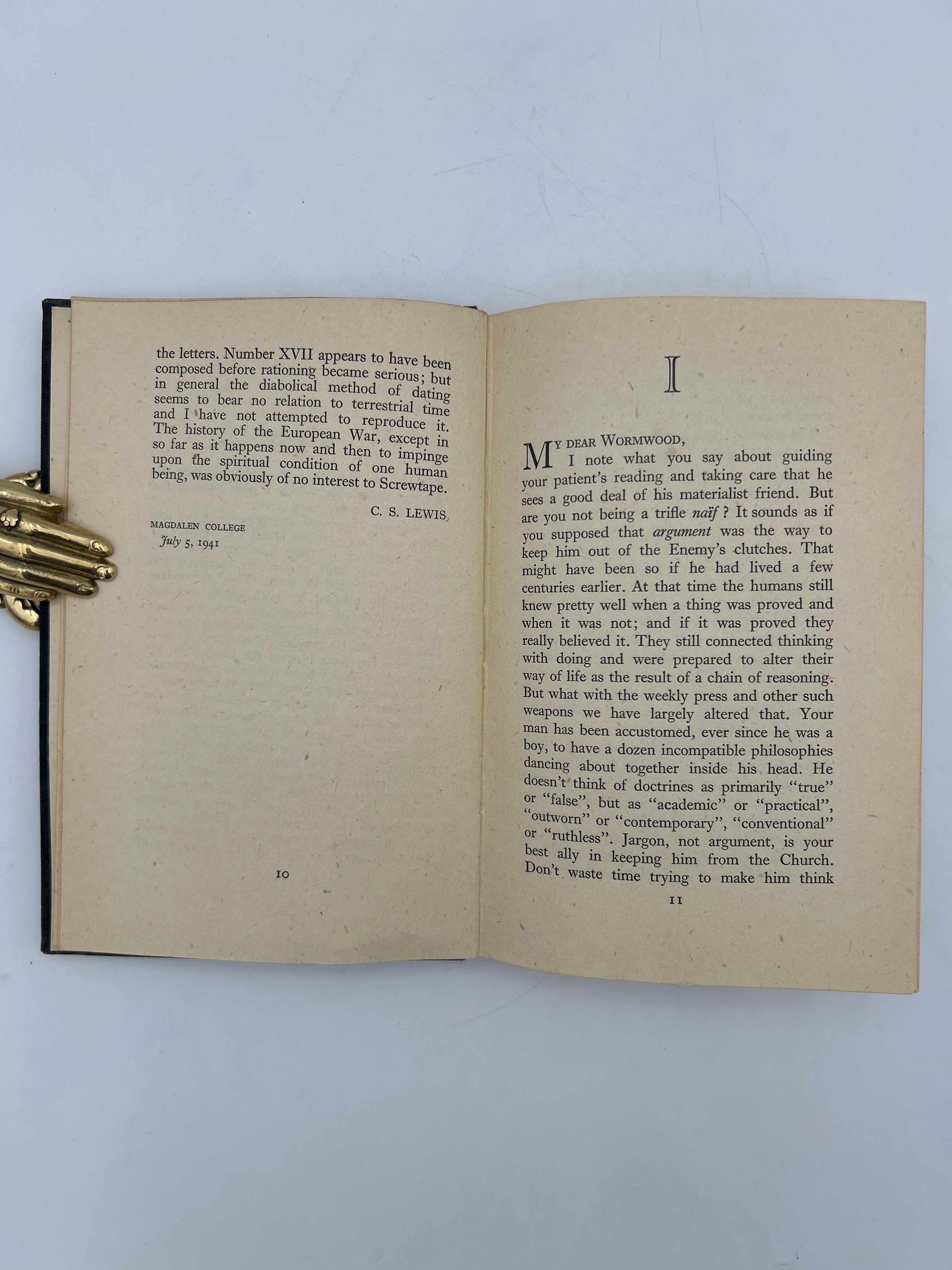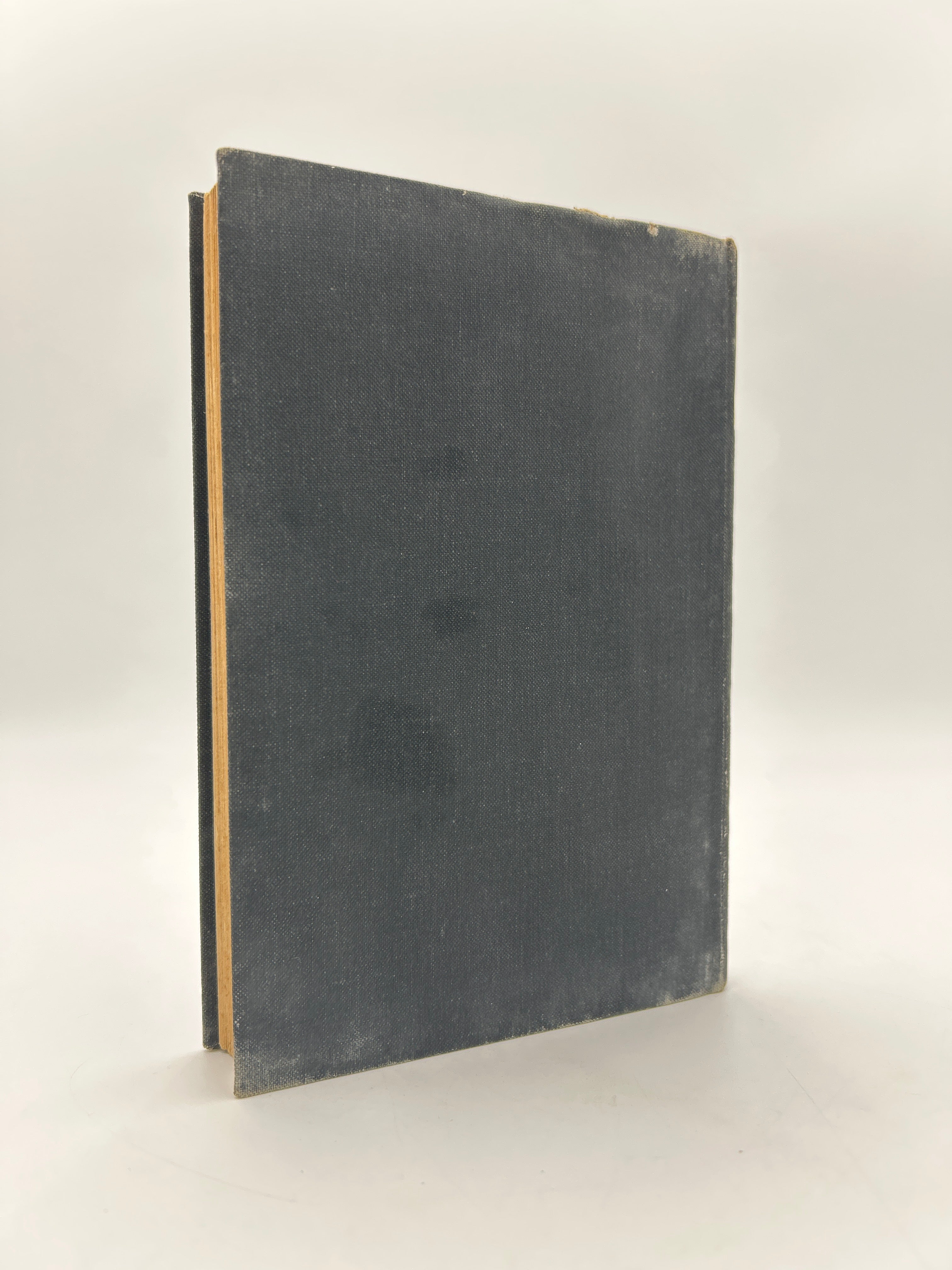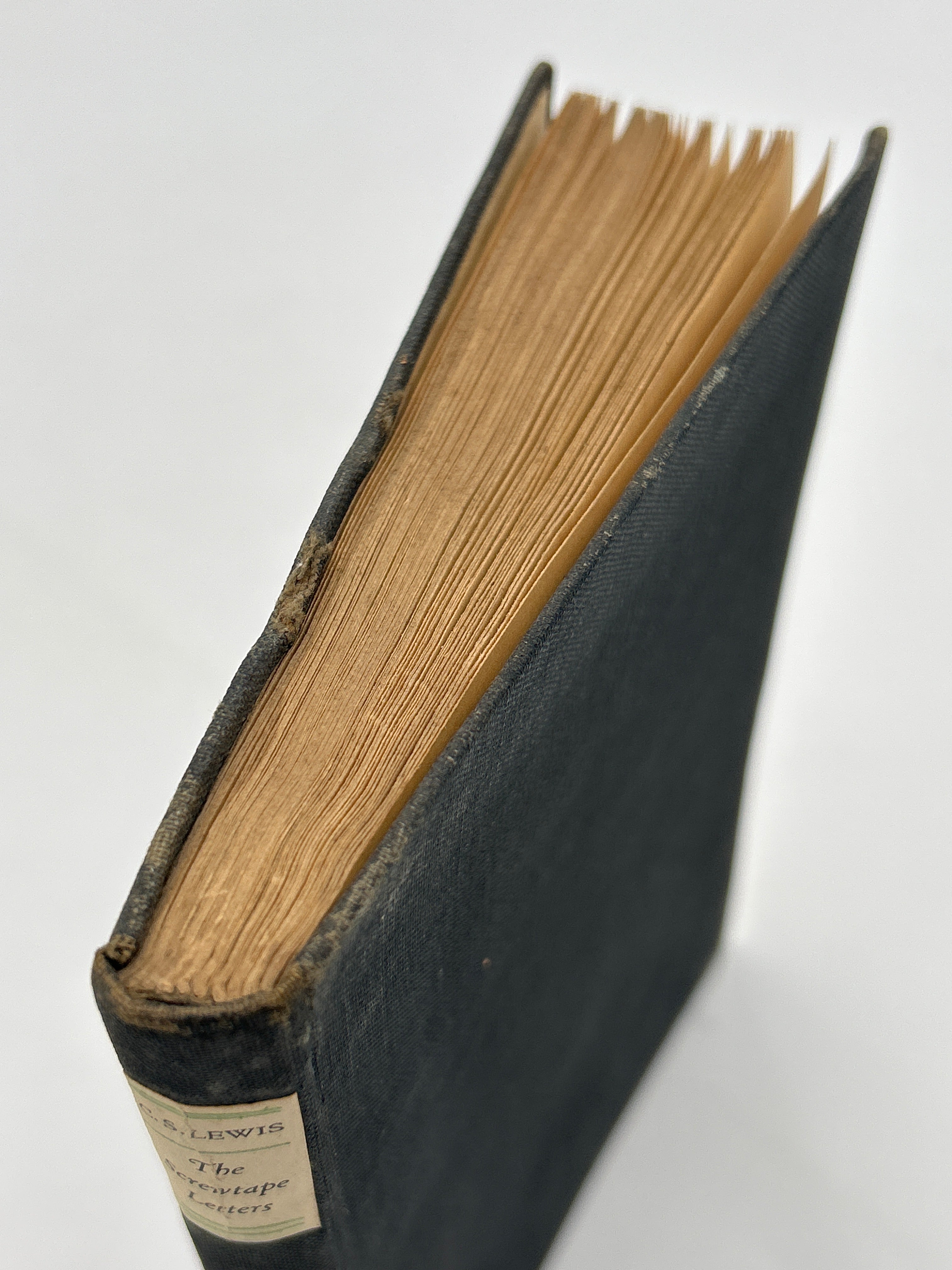The Screwtape Letters
Couldn't load pickup availability
5b C. S. Lewis. London: Geoffrey Bles, 1942. First Edition. Second Impression.
Notes
The Screwtape Letters, published in 1942, is one of C.S. Lewis’s most original and provocative works, written as a satirical and imaginative series of letters from a senior demon, Screwtape, to his inexperienced nephew Wormwood. In these letters, Screwtape advises Wormwood on how best to tempt a human "patient" away from God (referred to as "the Enemy") through subtle manipulation of thoughts, habits, and emotions. With wit, irony, and deep insight into human nature, Lewis explores themes of faith, temptation, pride, and spiritual warfare from a devil’s-eye view, making serious theological points through dark humor and reversal of perspective. The book became a classic almost immediately for its clever format and penetrating moral wisdom.
C.S. Lewis’s path to writing The Screwtape Letters was shaped by his own spiritual and intellectual journey. Originally an atheist, Lewis converted first to belief in God in 1929 and then to Christianity in 1931, influenced in part by close friends like J.R.R. Tolkien. A scholar of literature and mythology, Lewis used his deep understanding of human psychology, narrative, and faith to craft a fictional work that addressed real spiritual challenges faced by believers. His conversion gave him a unique ability to speak to both skeptics and Christians, blending reason, imagination, and theology in a way that was engaging and accessible. The Screwtape Letters reflects his mature Christian thought, particularly his emphasis on the quiet, everyday ways that people can drift from—or be drawn toward—God.
The first edition of The Screwtape Letters was published by Geoffrey Bles in London in 1942, during the height of World War II, and was an immediate success. Its sharp tone, moral seriousness, and inventive format resonated with readers in a time of turmoil and uncertainty. Early editions featured a simple red cloth binding and sold quickly, leading to multiple reprints in the same year. In the U.S., it was first published later in 1943 by Macmillan. Some early editions included a brief preface and, in later printings, Lewis added a satirical postscript titled "Screwtape Proposes a Toast," which expanded on the original ideas. First and early editions are now highly collectible, valued for their historical context and the enduring popularity of Lewis’s work.
Description
Some soiling to lower edges of covers. Blue ink inscription to preliminary flyleaf. Some pencil markings throughout with pencil writing in margins on pages 34, 55, and 119.
